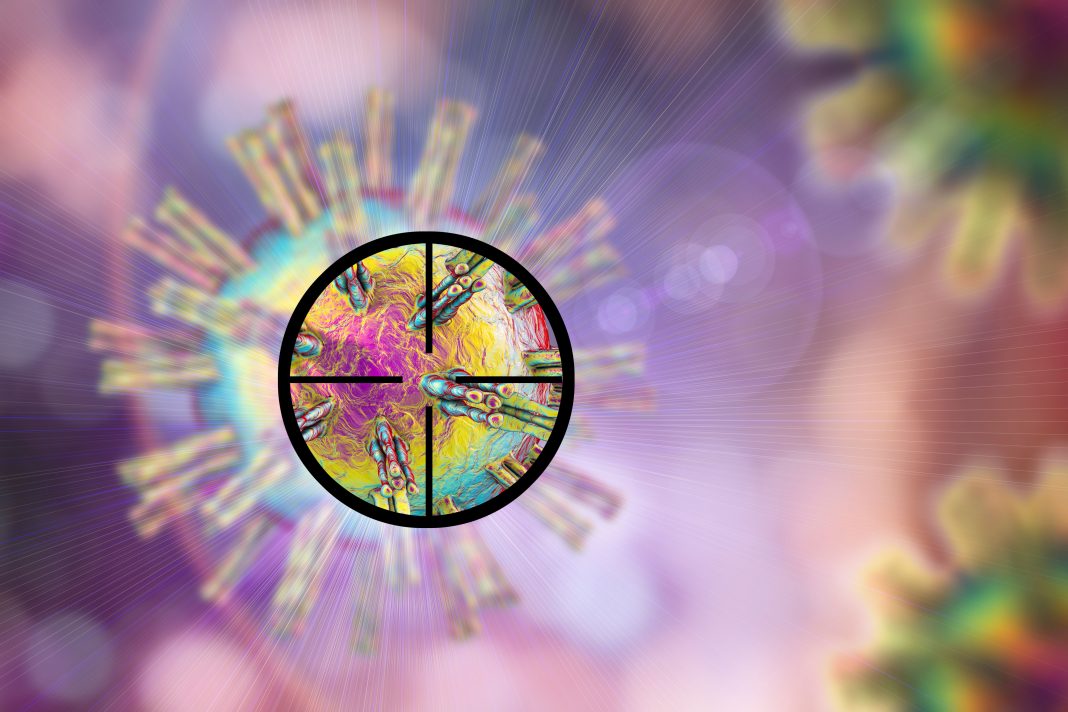Given the steady numbers of new COVID-19 cases, the appearance of new variants, and the considerable time that vaccinations will take to reach target levels needed for herd immunity, the development of treatments and useful therapeutics remains a top priority. In particular, treatments and preventive approaches that can be widely and rapidly implemented are urgently needed to curb the risk for COVID-19 related hospitalization and death in multiple settings including nursing homes and long-term care facilities.
Now, scientists at UNC have found that the orally administered experimental drug EIDD-2801 (now known as molnupiravir or MK-4482) halts SARS-CoV-2 replication and prevents infection of human cells in a new in vivo lab model containing human lung tissue. Separate Phase II and III clinical trials are ongoing to evaluate molnupiravir safety in humans and its effect on viral shedding in COVID-19 patients, and the first results could be released as early as March.
This work is published in Nature in the paper titled, “SARS-CoV-2 infection is effectively treated and prevented by EIDD-2801.”
Molnupiravir is being developed by Merck & Co. in collaboration with Ridgeback Therapeutics.
Mouse models can be useful in studying highly pathogenic human coronaviruses including SARS-CoV-2 and compounds that might control infection. But human coronaviruses do not replicate in mice unless researchers alter the virus, genetically modify the mice, or introduce the individual human receptor genes into mice so the virus can infect cells. Such mouse models have added to the scientific community’s understanding of coronavirus infection and disease progression, but none of these models possess the diverse human cells found in human lungs where viral infection can cause severe disease. UNC scientists created a solution to this problem—a line of mice with human lung tissue that includes all the primary human cells infected when individuals fall ill with COVID-19.
In this study, they used a single experimental platform based on human lung-only mice (LoM) to demonstrate efficient in vivo replication of all recently emerged human coronaviruses (SARS-CoV, MERS-CoV, and SARS-CoV-2) and two highly relevant endogenous pre-pandemic SARS-like bat coronaviruses.
The immune-deficient mice implanted with human lung tissue allowed for replication of SARS-CoV-2, which resulted in infection that recapitulates several features of early diffuse lung damage seen in COVID-19 patients. In addition, acute SARS-CoV-2 infection induced a robust and sustained Type I interferon and inflammatory cytokine/chemokine response.
To evaluate the therapeutic efficacy of molnupiravir for COVID-19, the researchers administered the drug to LoM starting 24 hours or 48 hours post SARS-CoV-2 exposure and every 12 hours thereafter.
“We found that EIDD-2801 had a remarkable effect on virus replication after only two days of treatment—a dramatic, more than 25,000-fold reduction in the number of infectious particles in human lung tissue when treatment was initiated 24 hours post-exposure,” said senior author J. Victor Garcia, PhD, professor of medicine and director of the International Center for the Advancement of Translational Science. “Virus titers were significantly reduced by 96% when treatment was started 48 hours post-exposure.”
Next, the researchers tested the ability of molnupiravir to prevent SARS-CoV-2 infection by administering the drug 12 hours prior to SARS-CoV-2 exposure and every 12 hours thereafter.
“Remarkably, we found that EIDD-2801 pre-exposure prophylaxis significantly inhibited SARS-CoV-2 replication—reducing virus titers in the human lung tissues of LoM by over 100,000 fold in two independent experiments,” said co-first author Angela Wahl, PhD, assistant professor of medicine and assistant director of the International Center for the Advancement of Translational Science.
Bats are the presumed source of SARS-CoV-2 and the highly pathogenic human coronaviruses SARS-CoV and MERS-CoV, all of which emerged into the human population within the past two decades.
“We show that LoM allow for the in vivo study of all recently emerged human coronaviruses in a single platform,” said co-first author Lisa Gralinski, PhD, assistant professor of epidemiology. “Our model allows researchers to directly compare infection between human coronaviruses and the effectiveness of potential preventative and therapeutic approaches.”
Gralinski added, “We also show efficient replication of endogenous bat coronaviruses in LoM human lung tissue without the need for prior adaptation of the viruses, confirming that bats harbor viruses that are capable of directly infecting humans without the need for further adaptation.”
In short, the authors wrote, “Bats harbor endogenous coronaviruses capable of direct transmission into humans.”
“Previously, we demonstrated that EIDD-2801 is also efficacious against SARS-CoV and MERS-CoV infection in vivo and in primary human airway epithelial cultures,” said Ralph Baric, PhD, the William Kenan distinguished professor of epidemiology at the UNC Gillings School of Global Public Health and the UNC School of Medicine. “Overall, these results indicate that EIDD-2801 may not only be efficacious in treating and preventing COVID-19, it could also prove to be highly effective against future coronavirus outbreaks as well.”
*Ridgeback Therapeutics is co-developing EIDD-2801 (more recently called molnupiravir or MK-4482) with Merck & Co.







